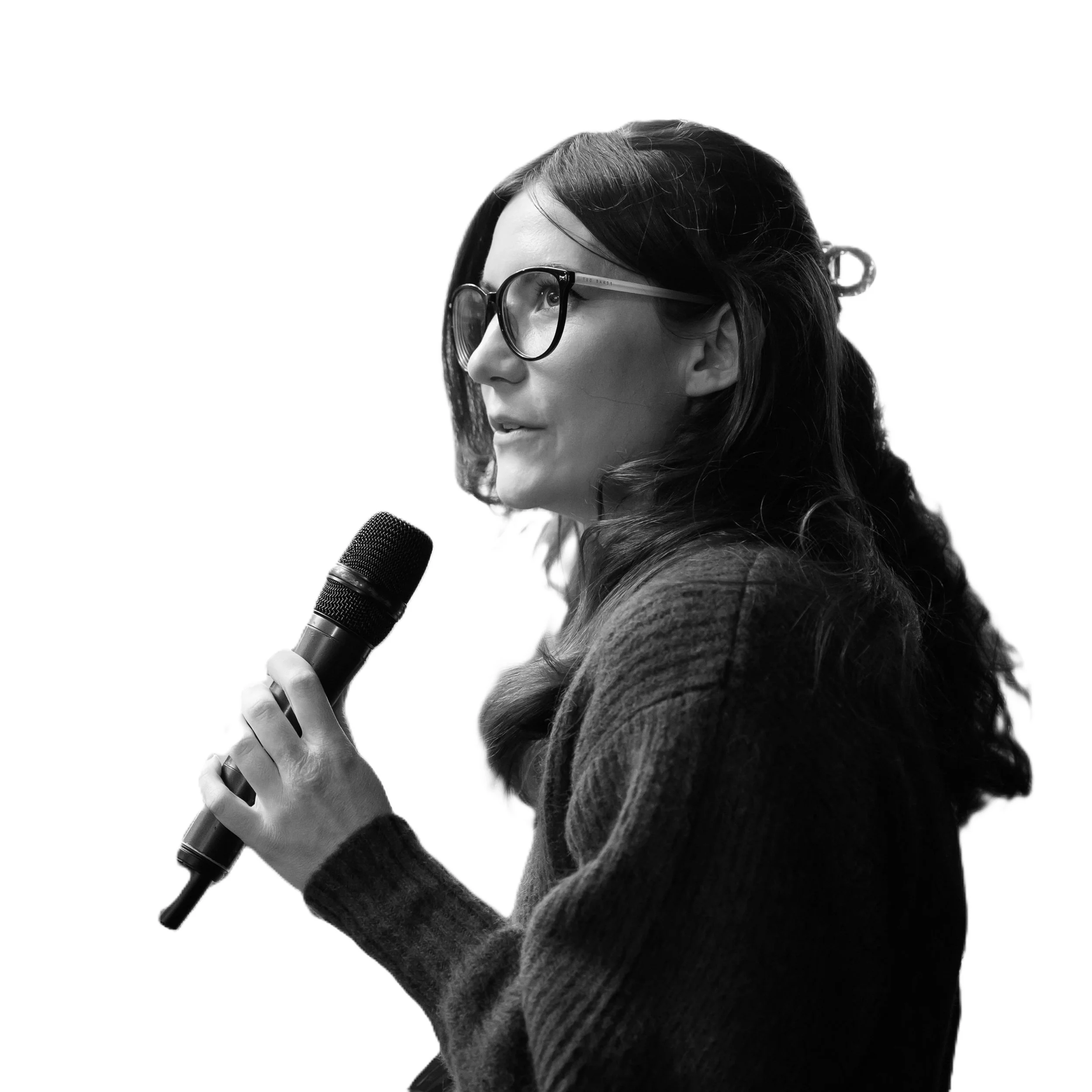In the wake of anti-poverty week Joey King, a community services professional and student living with mental illness, details the systemic pressures that keep her ‘dirt poor’ and homeless.
Read MoreNew research shows households with young children are feeling the highest level of stress as a result of the COVID-19 pandemic. This is highest for families in communities that experience moderate levels of poverty. Professor Abigail Payne from the University of Melbourne discusses what needs to happen to ensure families are not left behind as we look ahead to the COVID-19 economic recovery.
Read Moren today’s blog post Robyn Oxley from the University of Western Sydney discusses ways to look beyond punishment as a way to address crime, with a specific focus on Aboriginal and/or Torres Strait Islander people. She argues that defunding police and abolishing prisons are not radical ideas when funds can then be re-directed towards areas that improve social issues such as housing, health, education and employment, which in turn reduce incarceration rates.
Read MoreEvents such as wild fires, floods, and droughts in all continents remind us of how fragile and vulnerable cities, communities, and wildlife are. In this blog Dr Juan Carlos Fallas Chinchilla examines the role engineering innovation has in relation to alleviating climate change; and debate the need for new technology alongside other policy instruments and how these can be complementary in tackling the climate emergency.
Read MoreAnti-Poverty Week is an event held every October to raise awareness and understanding of the causes and consequences of poverty in Australia, and to encourage action to end it. In today’s analysis, researchers at the Life Course Centre (@lifecourseAust) are highlighting the links between women, violence and poverty, and the structural inequalities that must be addressed to stop it. A summary of this analysis is presented here by Dr Alice Campbell (@ColtonCambo) and Professor Janeen Baxter (@JaneenBaxter7); you can read their full report here.
Anti-Poverty Week runs from 17-23 October this year.
Read MoreThe Women’s Safety Summit has sparked multiple conversations about best practice and effective policy for the next National Plan to End Violence Against Women and their Children. In today’s analysis, Emma O’Neill of Good Shepherd Australia New Zealand (@GoodAdvocacy) makes the argument that wider policy decisions during the term of the first National Plan reduced women’s economic security and ran counter to women’s safety, and that these need to be reversed under the next National Plan.
Read MoreYoung people with lived experience of self-harm or suicidal behaviour should be at the forefront of designing, evaluating and implementing suicide prevention research.
Controversial? Unfeasible? Risky?
You name it. As a suicide prevention researcher I have heard it all…by funders, ethics committees, Higher Education Health and Safety committees to name a few.
In this blog, I (Dr Maria Michail) share my experience of working in partnership with young people with lived experience of self-harm and suicidal behaviour to co-design of a guide titled “Visiting your General Practitioner: A guide for young people with lived experience of self-harm and suicidality”.
Read MoreIn this punchy piece about gender discrimination and employee dress codes, Dr Briony Lipton (@briony_lipton) discusses work clothing in the time of coronavirus. With reference to the Department of Home Affairs’ attempts to ban sleeveless blouses from video calls for employees working at home, Dr Lipton explores changing norms of workplace attire and the confusion they can entail…
Read MoreIn this short but powerful piece, PhD scholar and ANZSOG researcher Patrick Lucas (@paustinlucas) discusses how nature is valued in very different ways by different social groups, and how current policy frameworks struggle to account for this diversity. He explores the emerging framework of “relational values” and its potential to lead to more equitable and just outcomes in biodiversity conservation.
Read MoreWithout representation, young people are struggling to get their voices heard in the decisions that affect them. Lowering the voting age to 16 is one integral way the government can reinvigorate the interest of young people in their democracy, argues Jordan Maloney, ANU Political Science and Sociology student and policy adviser
Read MoreAs pandemic impacts continue to be felt across much of Australia, changes in personal debt, particularly for women and lower-income households, is increasingly concerning. In today’s analysis, Dr Lucinda O’Brien (Melbourne Law School), Dr Vivien Chen (Monash Business School), Professor Ian Ramsay (Melbourne Law School) and Associate Professor Paul Ali (Melbourne Law School) report on research recently published on how under -regulated debt collection practices are contributing to women’s lack of safety.
Read MoreToday’s long read post is a discussion piece by a disability advocate based in regional Victoria. The author, who requested anonymity for safety reasons, is living through the COVID-19 pandemic with insecure housing and significant health risks. This post is republished with permission from the author’s blog Disability Advocacy Truth Telling.
Read MoreThe Federal Government’s Women’s Safety Summit indicates a keen interest in doing more to keep women safe; however, social security settings were not a focus of the agenda, despite the central role that financial security plays in securing women’s safety and agency. In today’s analysis, Lily Gardener and Policy Whisperer Susan Maury of Good Shepherd Australia New Zealand (@GoodAdvocacy), and Frances Davies of the National Foundation for Australian Women (NFAW) argue that the JobSeeker Payment, originally designed for younger unemployed men, is disproportionately exacerbating poverty for women. This analysis is part of the NFAW (@NFAWomen) Gender Lens on the Budget series, drawing on the income support analysis.
Read MoreGender inequality takes many shapes, embedding into systems and structures in ways that may be hidden. In today’s analysis, Policy Whisperer Susan Maury (@SusanMaury) and Lily Gardener of Good Shepherd Australia New Zealand (@GoodAdvocacy) and Frances Davies of the National Foundation for Australia Women (NFAW) provides a thorough analysis of how Australia’s social security settings, by maintaining the sole use of the CPI in most income support payments is disproportionately exacerbating poverty for women. This analysis is part of the NFAW (@NFAWomen) Gender Lens on the Budget series, drawing on the Indexing analysis, as well as on Good Shepherd’s submission on the adequacy of the Newstart Allowance.
Read MoreThe Women’s Safety Summit was noticeably silent on the social safety net. As an area over which the Federal Government has complete control, it represents an accessible lever for policy change. In today’s analysis, the paper that was tabled jointly by the National Council for Single Mothers and their Children (NCSMC) and ACOSS (@ACOSS) is presented, detailing eleven ways that social security works to harm women. Terese Edwards (@Terese_NCSMC) of NCSMC provides a preface.
Read MoreOne woman a week is murdered in Australia, but there has been little to no progress on reducing this grim statistic. In the wake of the Women’s Safety Summit, it is clear a multi-pronged approach is needed. In today’s analysis, Brenda Gonzales of the Data Feminism Network (@DataFemNetwork) provides an example of how a private citizen in Mexico initiated policy change to make women safer through contextualised data collection of feminicides.
Read More‘Closing the gap’ is a major, and highly visible, government policy goal, with the intention of reducing disparities between Australia’s First Nations peoples and White communities. Despite many years, however, there has been little demonstrable progress. Today’s analysis utilises critical race theory, with important lessons for intersectional feminism. Penny Skye Taylor (@PennySkyeTaylor) and Daphne Habibis (@dhabibis), both of the University of Tasmania (@UTAS_), identify white ignorance as an overlooked key factor. This analysis is drawn from their research into Aboriginal views of White Australians and the dominant culture.
Read MoreWhy are victim-survivors of gender-based violence such powerful agents of change? What perils do they face? New research published in the journal Violence Against Women (@VAWJournal) presents findings from an in-depth study of domestic and family violence advocate Rosie Batty and the significant social and policy change she helped to drive in Australia. Lead author Lisa Wheildon (@wheeliebinit), from BehaviourWorks at the Monash Sustainable Development Institute, shares a summary of the findings from the study, co-authored with Professor Jacqui True (@JacquiTrue), Associate Professor Asher Flynn (@AsherFlynn), and Abby Wild.
Read More



















